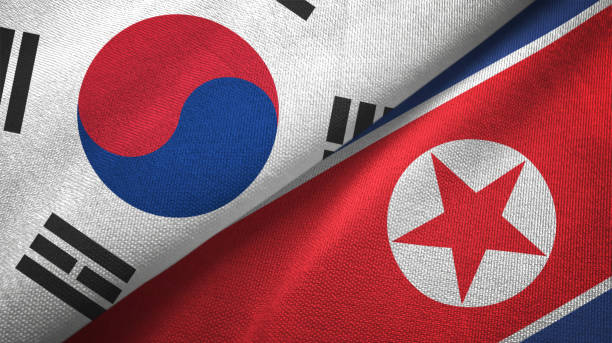
On Tuesday Morning, North Korea escalated regional tensions, launching what is believed to be an intermediate-range ballistic missile at 6:53 a.m. This provocative act, occurring shortly before South Korea’s critical parliamentary elections set for April 10, represents North Korea’s strategy of timing its military weapons testing with South Korea’s elections.
The missile’s trajectory, landing beyond Japan’s exclusive economic zone after flying approximately 600 kilometres and reaching an altitude of around 100 km, shows North Korea’s advanced military capabilities. This launch is a demonstration of existing technology and a significant step in developing a greater weapon arsenal. A brand-new engine created for a hypersonic missile that North Korea had tested earlier this year powers the missile. These hypersonic weapons can deploy a reentry vehicle that can alter its flight path at great speeds. This capability poses a serious challenge to modern missile defence systems.
The recent engine test and missile launch are to test the engine’s reliability and ability to burn for extended periods, potentially allowing a missile to travel longer distances. North Korea’s efforts to develop an advanced nuclear arsenal, despite international sanctions and diplomatic isolation, demonstrate the commitment of the state to advancing its military technology. This new missile launch serves as a reminder of North Korea’s ongoing threat to South Korea, particularly as South Korea is holding parliamentary elections on April 10. The launch timing is hardly coincidental, reflecting an effort by North Korea to assert its influence on the political situation in South Korea.
This provocation occurs during heightened tension between North and South Korea under President Yoon Suk Yeol’s conservative administration. President Yoon’s firm stance against Pyongyang is a significant departure from past, more pacifying approaches.
North Korea’s aggressive weapons testing aims to worsen political divisions within South Korea, potentially strengthening support for President Yoon’s opponents in the Democratic Party. The progressive party supports a policy of engaging and reconciling with the North. The upcoming key legislative elections in South Korea will be a test of public support for President Yoon’s policies against North Korea. Current polls show a challenge for President Yoon’s People Power Party (PPP), as the opposition Democratic Party is leading in voter preference. If the PPP loses the elections, it could weaken President Yoon’s mandate and have significant implications for his policy direction.
President Yoon’s focus on strengthening military ties with the United States and promoting closer relations with Japan is controversial in South Korea. Yoons positions have led to significant public debate due to the historical sensitivities surrounding Japan’s colonial rule over Korea. North Korea’s ballistic test could remind voters of Yoon’s close relations with Japan and the United States, potentially influencing voting behaviour.
While North Korea’s recent launch does not carry the immediate alarm of an intercontinental ballistic missile (ICBM) test or a nuclear detonation, its impact on the upcoming National Assembly elections should not be underestimated. However, voters are desensitised to weapon testing by North Korea, with 36 missile tests in 2023. This means that while voters are concerned about North Korea as a security threat, they have become used to the constant provocations.
A report titled “North Korea’s Intervention in South Korea’s Elections and Prospects” by the Institute for National Security Strategy earlier this year emphasised the practice of North Korean weapon testing timed around South Korean elections. The North Korean government conducts these provocations to influence the South Korean public and influence government policy in a direction that is in line with Pyongyang’s interests. This strategy relies on inciting public anxiety, with the expectation that an apprehensive electorate may prefer candidates or parties more open to engaging in diplomatic discussions with North Korea. This approach would potentionally mean reducing tensions through measures such as providing economic aid to North Korea or reducing military exercises between South Korea and the United States.
It’s important to note that the impact of North Korea’s provocations on South Korean electoral politics may be changing. Recent trends indicate that voters are becoming more focused on domestic issues like the housing crisis and challenges within the healthcare system. This shift could lessen the influence of North Korea’s military actions on voting behaviour.In conclusion, North Korea’s missile launch serves as a reminder of its threat and could impact South Korea’s election.
By The European Institute for International Relations















